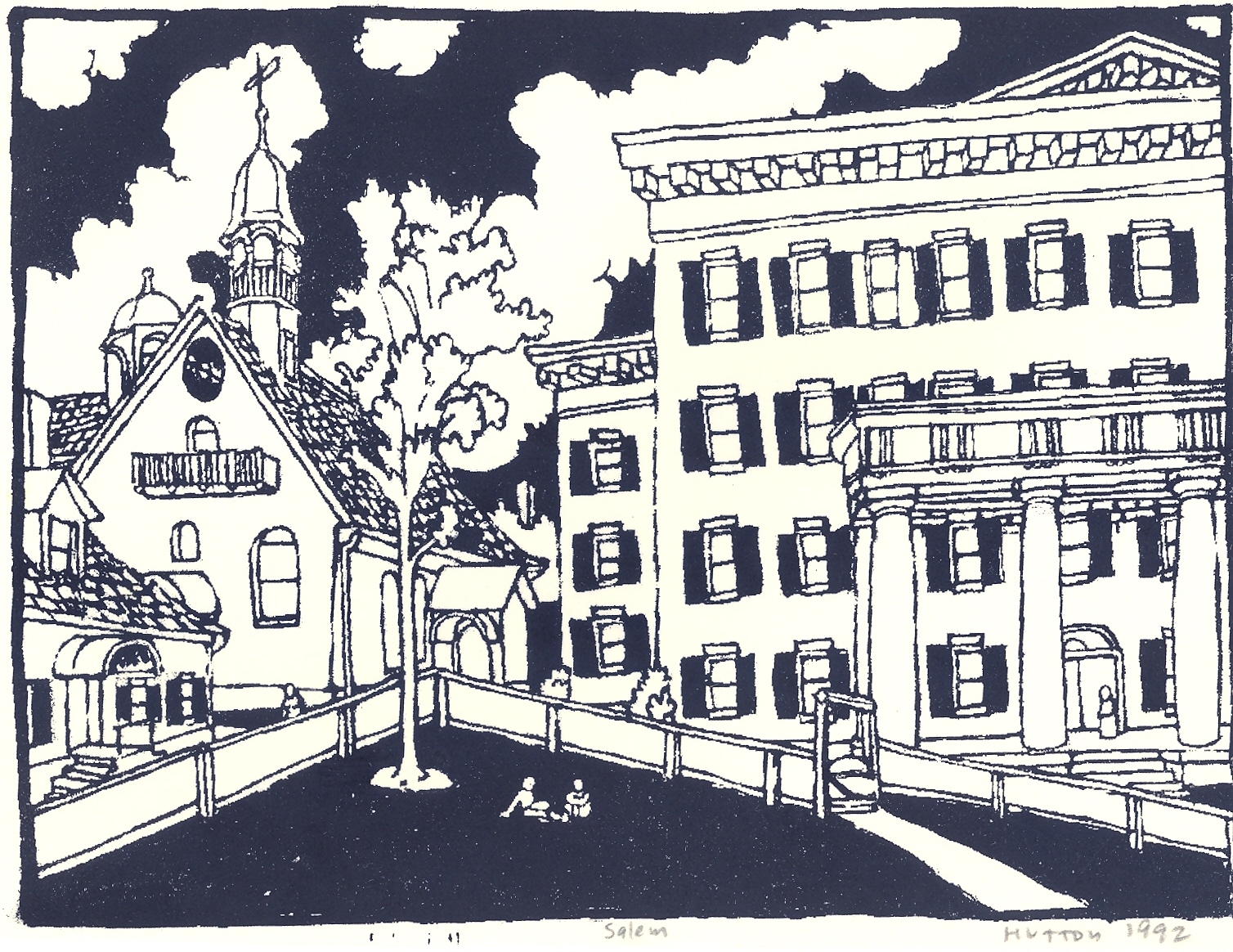Academic Programs
Arts: Visual and Performing Arts

Salem College offers a bachelor of arts in the visual and performing arts with concentrations in Art History, Studio Art, Pre-art Therapy, and Music. It also offers minors in: Art History, Studio Art, Music, Visual and Performing Arts, Therapeutic Arts, and Visual Literature. These programs provide students with a solid background in academic training while exposing them to a wide variety of media, techniques, and contemporary issues. The result is a graduate confident in their abilities and clear in their artistic and performing goals.
Student Experience
Studio Art:
Students in Studio Art spend each semester building their skills in different mediums, techniques, and processes. They master classes in drawing, color theory, art history, painting, and printmaking, all with a focus on developing personal voice and individuality. The result of this study will be a culmination of artwork that exudes voice and individuality.
Art History:
Students in Art History enrich their lives and learn how to think about an extraordinary and universal human activity. They discuss and analyze great works of Western and World Art. They study the lives and thoughts of some of the most creative people in world civilizations, from all time periods. The results for students are internships, jobs in local and national art organizations, and acceptance into many fine graduate programs in the United States and abroad. Senior Art History students prepare a semester-long thesis/research project on a subject of their choice.
Music:
Students in Music perform as soloists in Performance Forum, as collaborative musicians through chamber music and choir, and in end-of-semester showcases. Music students at Salem gain valuable practice in a performance setting, growing into skilled and confident musicians, with the potential for employment as church musicians, accompanists, and solo performers, as well as the option to pursue graduate studies in music.
Students in Music also perform in a senior solo recital, present a lecture-recital, or write a senior thesis. This culminating experience as a performer and/or researcher encourages students to maximize their potential as thinking musicians and to share their passion and curiosity for music with the Salem community. These senior projects serve as springboards to future employment, or prepare students for entering graduate studies in music.
Therapeutic Art:
A minor in therapeutic art offers a wide perspective on the healing aspects of art making, focusing on how art works with children and adults in diverse settings. Education in therapeutic arts benefits students who desire to gain general knowledge and skill in creative health and art in wellness practice. This minor pairs well with degrees in Exercise Science, Health Studies, or Critical Health Studies.
Health Leadership Highlights
Studio Art:
- Studio Art students are a strong community who seek to serve the campus community and beyond. Students volunteer countless hours to community arts organizations, including Sawtooth School for the Visual Arts, Winston Salem Mixxer, and Art Crush Downtown Arts District.
- Students share how the visual arts enrich their lives through artmaking as a therapeutic activity aimed at healing and life balance.
Art History:
- Art History students develop empathy and visual literacy, skills important for health professionals and for anyone whose job requires working with people. They learn to observe, describe, analyze, and interpret visual phenomena.
- Many Art History courses encourage cognitive empathy, through the study of artworks from multiple cultures.
- All Art History courses also promote emotional empathy. Most periods of World Art are concerned with the visual representation of emotion, often through visual storytelling. Learning to read these emotions in art helps students to practice their own ability to connect emotionally with others.
Music:
- In the Special Topics in Music and Health course, students explore a variety of ways in which music and health intersect in our lives, both personally and globally.
- Student projects include curating playlists that assist with stress management, performing for patients in local hospitals and assisted living facilities, and researching and writing about the latest clinical uses of music to treat patients in hospital settings.
- In Alexander Technique, students learn to identify and prevent unnecessary patterns of tension during practice and performance. Mastering the Alexander Technique leads to improved coordination, promotes ease and freedom of movement, and helps the musician avoid strain and injury, allowing them to maximize their artistic potential.
Jobs and Outcomes
With a visual and performing arts major or one of the six available minors, Salem students are well suited to pursue advanced graduate studies or step into a wide range of professional fields including interior design, K-12 education, arts administration, solo and collaborative performance, music ministry, private music instruction, music criticism, professional art, art gallery administration, auction house administrations, and museum curation.




